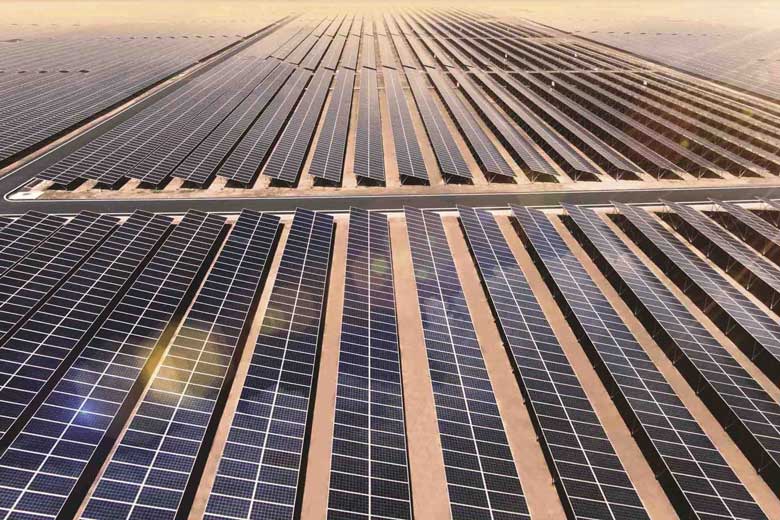

The sea change heralded by the transformations taking place in the global energy market and industry is having equally transformative effects on producing countries, particularly those in the Middle East – which hold nearly half of the world’s oil reserves and whose economies and national security are so dependent on oil and gas production.
 The Washington-based IMF has long suggested that drastic reforms are needed among the oil-exporting nations in the Middle East to address issues of social inclusion, job creation and sustainable growth.
The Washington-based IMF has long suggested that drastic reforms are needed among the oil-exporting nations in the Middle East to address issues of social inclusion, job creation and sustainable growth.
In its latest Regional Economic Outlook in May, the IMF says 2017 saw economic growth in GCC countries decline sharply, along with other producing states in the region, due to low oil prices. Saudi Arabia, the biggest Arab economy, saw its economy shrink for the first time since the global downturn in 2009.
“Each $10 reduction in the price of oil lead to an instantaneous deterioration of three percentage points of GDP in the fiscal balance of Menap (Middle East, North Africa, Afghanistan and Pakistan) oil exporters (excluding Libya and Yemen),” the IMF warned in its outlook.
Economic diversification
The Gulf countries are at various stages of national drives to diversify their economies in addition to ploughing their massive fossil-fuel derived fortunes into overseas ventures in a bid to grow their ‘rainy day’ savings through lucrative investments. This includes buying up shares in major car companies and real estate in prized locations.
Efforts to seek longer-term sustainable methods to shore up their economies have accelerated since oil prices tumbled in 2014.
To bridge the divide between the immediate pressing needs of economic development and longer-term objectives, major producers such as Saudi Arabia and Abu Dhabi are either in the advanced stages of going public with segments of their national oil companies, or have already done so.
The Gulf region’s centralised monarchical governments and their nationalised and semi-nationalised entities are in the middle of efforts to redistribute their oil and gas wealth and develop homegrown industries and supply chains for goods and services in order to create widespread jobs programmes for their citizens.
Currently, much of the economic diversification being sought in the region emanates from developing and finding new hydrocarbon products to produce and markets to sell them to. Nearly all the major producers in the region either have existing billion-dollar refining and petrochemicals projects undergoing expansion or new infrastructure under construction.
Nevertheless, for the first time, a strategic shift towards cleaner and renewable energy sources is also under way, in a signal of a maturing outlook for the region’s governments towards achieving greater energy security and economic stability moving forward.
Foreign companies that wish to do business in these countries are now being incentivised to invest in local capital and research and development programmes. They are also being encouraged to employ new processes and technologies to drive greater efficiency.
A prime example of a company straddling and meeting the various parts of these national growth agendas is GlassPoint, a California-based solar-powered steam producer that has partnered with the national oil companies of Oman and Kuwait to improve yields from heavy oil fields in both countries.
Producing Kuwait’s abundant heavy oil resources is integral to the country’s oil production strategy of reaching 4 million barrels of oil (b/d) a day. Kuwait Oil Company recently started developing its first heavy oil project at Ratqa Lower Fars in northern Kuwait, targeting 270,000 barrels of heavy oil a day by 2030. Developing Ratqa will require steam injection, a type of thermal enhanced oil recovery (EOR) where heat is used to facilitate production of the viscous oil. The process typically burns large volumes of natural gas or other fuels to generate steam.
Local suppliers
Glasspoint is also working closely with suppliers in Oman — where it first broke ground in the Gulf — to qualify local companies for its Miraah major heavy oil extraction project, which uses large aluminium structures to support an array of curved mirrors used for steam generation.
In addition to offering solar-powered steam technology, the company is trialling solar plants to be integrated into oil field operations, a welcome possibility for regional oil and gas producers seeking to reduce operational costs, reduce their natural gas usage, and increase output for both export and to meet increasing domestic demand.
Given that more than half of the world’s remaining reserves consist of heavy oil deposits requiring thermal EOR or steam injection to produce — and that this process accounts for 90 per cent of the energy consumed on these particular projects — partnerships such as those between GlassPoint and national oil companies in the Gulf will be critical to future regional economic development.

This article is extracted from a report produced by MEED and Mashreq titled The Future of Middle East Energy. Click here to download the report
You might also like...

Cyberattacks impact 44% of UAE retailers
24 April 2024

Abu Dhabi and Oman launch $180m tech fund
24 April 2024

Oman LNG wins key supply deals
24 April 2024

UAE and Oman firms sign $32bn energy deal
24 April 2024
A MEED Subscription...
Subscribe or upgrade your current MEED.com package to support your strategic planning with the MENA region’s best source of business information. Proceed to our online shop below to find out more about the features in each package.





